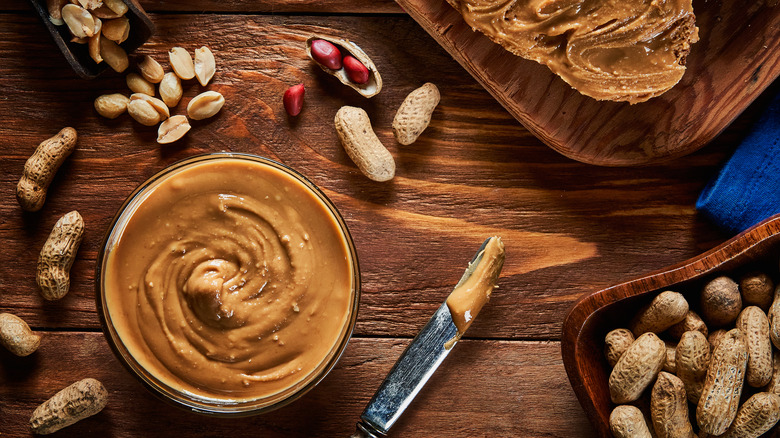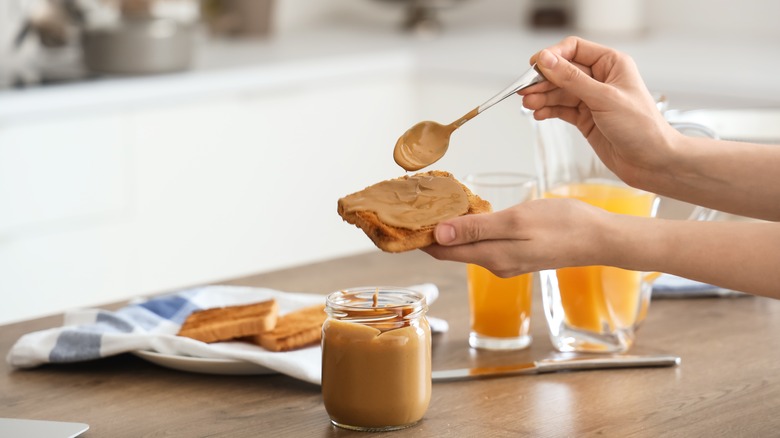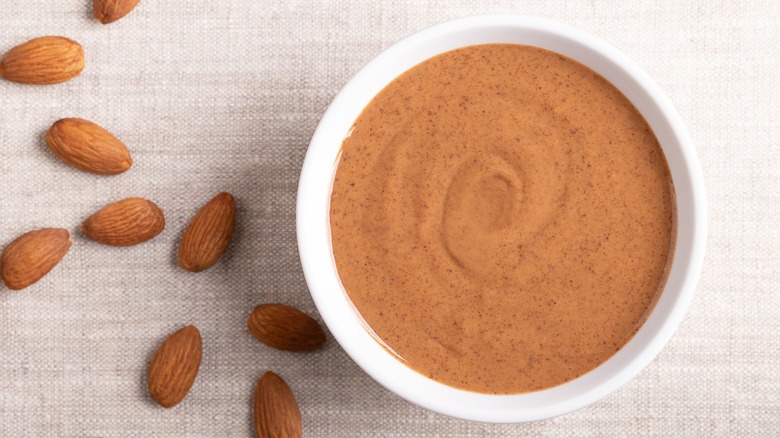The Correct Way To Store Your Homemade Nut Butter
There are plenty of mediocre nut butter choices out there (see for yourself with our ranking of peanut butter, specifically), which is why lots of us opt to make our own at home. The best part is that it only takes one main ingredient, nuts (of course), along with a pinch of salt to boost flavor, and any other seasoning you like. That's it, no extra additives are necessary. The one trade-off about so few ingredients, however, is that there are no preservatives in the homemade version of nut butter, which means its expiration date is much sooner than that of commercial nut butter (some of which can last up to two years in your pantry, unopened).
Unopened commercial natural nut butter (made with almost only nuts, with no additives) will still last for two years in your pantry. But once it's been opened, it's important to refrigerate it since there's no preservatives in it, and you've got between three and six months to use it up. That means the way you store your homemade nut butter is important. Because the natural oils in your nut butter can go rancid relatively quickly, you'll want to store the homemade stuff in the fridge, where a jar will last you about a month. Keeping the nut butter away from warmth and light is key, otherwise it'll spoil much faster.
Let your nut butter come to room temperature if you like it silky
The thing about storing your homemade nut butter in the fridge is that its texture will harden, making it almost impossible to stir or spread when it's still cold. No luscious gooey drizzles for you that way. So if your ideal version of nut butter is like a sauce, you'll have to let it stand at room temperature for a few minutes to warm up in order to reach spreading or stirring consistency.
If you're going to cook with it, that's another story. Just measure it out according to your recipe and toss it in your pan or skillet as necessary, unless your recipe calls for a sauce containing peanut butter that needs to be incorporated at room temperature, like the peanut butter sauce we use for our stir-fry recipes. Fortunately, waiting doesn't take terribly long, but it's something to keep in mind if you're planning ahead.
How to know if your homemade nut butter has spoiled
Because of homemade nut butter's shorter shelf life, you'll want to be on the lookout for signs of spoilage. In this case, you're simply working with your senses. If you see any signs of mold or discoloration, or if the nut butter has changed in scent akin to something soapy or bitter, which are signs of being rancid, it's likely your nut butter is no longer safe to eat.
That's as good an excuse as any to eat a bunch of it before it goes bad, right? If you'd like to put a spin on the typical peanut butter sandwich, feel free to dive into some peanut butter and mayo sandwiches, which are grandma-approved in some parts of the country. If you're not feeling a peanut butter sandwich of any variety, we've got plenty of ideas, including over a dozen peanut butter recipes to use up your homemade nut butter. Your options are wide open, which means that jar will be empty before you know it.


